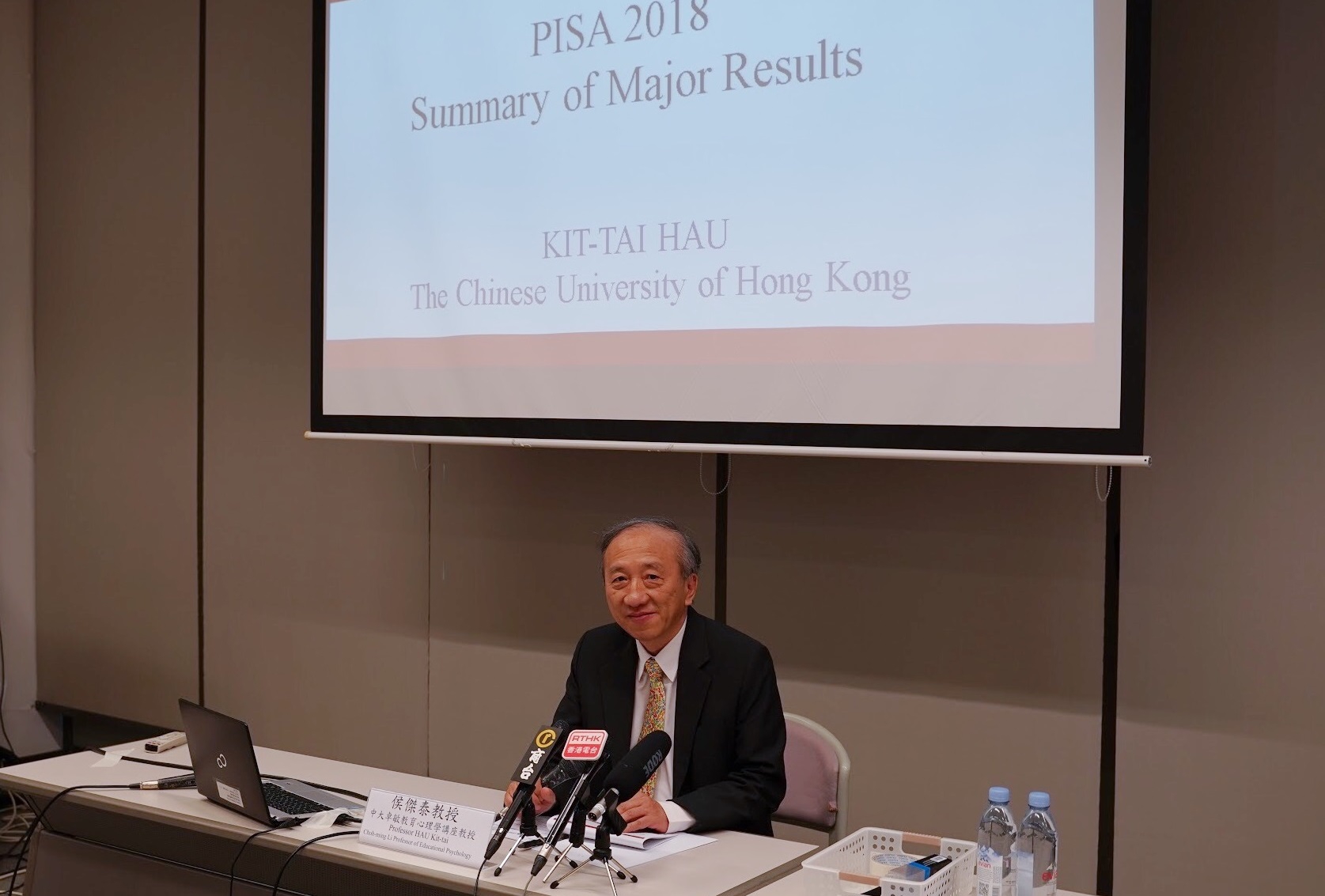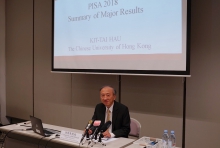CUHK
News Centre
CUHK Releases the Results of the Programme for International Student Assessment 2018
The EdDataX Research Centre at The Chinese University of Hong Kong (CUHK) releases the survey results of the Programme for the International Student Assessment (PISA) 2018 today(3 December). The results revealed that Hong Kong 15-year-old students topped the league table again in reading, mathematical and scientific literacy amongst the 79 participating countries/economies.
PISA, triennially organised by the Organisation for Economic Co-operation and Development (OECD), aims to find out 15-year-old students’ competence in mother-tongue reading, mathematics and science. The EdDataX Research Centre at CUHK was commissioned to conduct the assessment from April to May 2018. Around 6,037 students from 152 secondary schools were randomly selected to complete computer-based assessments on reading, mathematical and scientific literacy. Hong Kong students ranked fourth in both reading and mathematics and ninth in science in the overall rankings (see Appendix I and II).
The results also revealed that girls outperformed boys in all subject domains. Girls in Hong Kong tended to use more metacognitive skills such as understanding and remembering, summarising, and assessing credibility. Thus, they outperformed boys by 35 points in reading, which is a similar outcome to other participating countries/economies. For Mathematics and Science, boys tended to outperform girls in most high-achieving countries/economies (Appendix VII to IX). Yet, Hong Kong girls outperformed boys by 6 points in Mathematics and 9 points in Science.
High Quality Learning Opportunities for Hong Kong Students Regardless of Background
Besides the outstanding performance of Hong Kong students in reading, mathematical and scientific literacy, Hong Kong’s education equity also ranked second amongst participating countries/economies (Appendix III).* The result indicates that Hong Kong’s education system can provide high quality education irrespective of the socio-economic level of the student’s family (Appendix IV – VI).
Education related to migrants is also an important focus of PISA 2018, especially since Hong Kong has a lot of migrant students. Both migrant (scored 522) and non-migrant (scored 529) students in Hong Kong performed similarly and outstandingly in reading. Hong Kong is in second place, just behind Singapore, in providing similarly high quality education to migrants and non-migrants.* It is worth noting that 12% of students are first generation migrant students (born outside Hong Kong), which is lower than Macao (26%), Canada (17%), Singapore (16%) and Australia (14%), but higher than others.
PISA 2018 has also collected other valuable educational data such as students’ well-being, family resources and school climate. The EdDataX Research Centre will further study these themes and related reports will be published on eddatax.fed.cuhk.edu.hk in due course.
About PISA 2018
Programme for the International Student Assessment (PISA) assesses 15-year-old students with three foundational literacies – reading, Mathematics and Science. The project collects data on factors that can help explain differences in performance, and evaluate the effectiveness of the education system in participating countries/economics. Andreas Schleicher, OECD Director for Education and Skills, explained, “To do well in PISA, students have to be able to extrapolate from what they know, think across the boundaries of subject-matter disciplines, apply their knowledge creatively in novel situations and demonstrate effective learning strategies”.
PISA 2018 is also developing a new research domain “global competence”, the result of which will be released in December 2020.
*Among countries/economies’ achievement higher than OECD average



